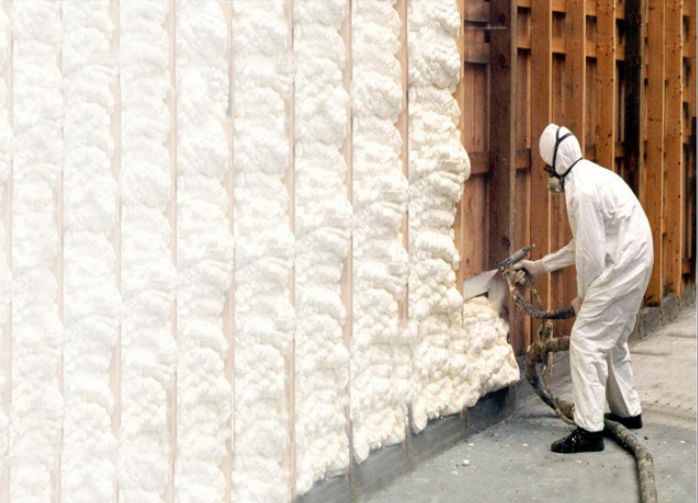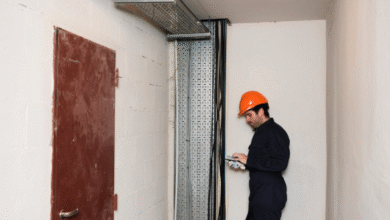More Than Savings—Real Spray Foam Benefits

While lower energy bills are the most talked-about advantage of spray foam insulation, the real benefits extend far beyond monthly savings. The most significant gains are often found in improved indoor air quality, greater structural integrity, superior moisture control, and a dramatic reduction in noise. These advantages stem from spray foam’s unique ability to create a continuous, monolithic air seal, effectively separating the indoor environment from the outdoors in a way that traditional insulation simply cannot match.
Focusing only on the financial return overlooks the immediate and long-term improvements in a home’s health, comfort, and durability. This guide explores those often-understated benefits, drawing from the field experience of insulation professionals who witness these effects in homes every day. Understanding this full picture is key to making a truly informed decision about your home’s insulation.
A Healthier Home with Better Air Quality
One of the most immediate benefits of a properly insulated home is cleaner air. Traditional insulation, like fiberglass batts, can still allow air to move through small gaps and cracks in the building envelope. This air infiltration brings outdoor pollutants such as pollen, dust, and other allergens inside. Spray foam expands to fill every crack and crevice, creating an airtight barrier.
This comprehensive air seal significantly reduces the amount of unfiltered outside air entering the home. For families with allergies or respiratory conditions, this can make a noticeable difference in their daily comfort and well-being. Recent reports indicate that effective air sealing can reduce indoor particulate matter by up to 25%, directly contributing to a healthier living space.
Bonus Tip: For homes with a very tight building envelope, installers often recommend a balanced ventilation system, like an Energy Recovery Ventilator (ERV). This ensures a steady supply of fresh air while pre-conditioning it, maintaining both air quality and energy efficiency.
Adding Strength to Your Structure
Beyond its insulating properties, closed-cell spray foam provides an unexpected structural advantage. When applied, it adheres tenaciously to the surfaces of studs, sheathing, and joints. As it cures, it becomes a dense, rigid material that can significantly increase the racking strength of walls and the uplift resistance of roof structures.
This added rigidity helps tie the building components together, making the entire structure more resilient against high winds and other environmental stresses. While it won’t turn a wood-framed house into a concrete bunker, some engineering studies have shown that closed-cell foam can increase a wall’s racking strength by as much as 300%. This is a particularly valuable benefit in regions that experience severe weather events.
The Ultimate Defense Against Moisture
Moisture is one of the biggest threats to a home’s longevity. It can lead to mold, mildew, wood rot, and poor indoor air quality. Closed-cell spray foam acts as a powerful defense against moisture intrusion. Unlike other insulation types that can absorb and hold water, the closed-cell structure is impermeable to moisture, acting as both an insulator and a vapor barrier in a single application.
When used in attics, crawl spaces, or on foundation walls, it prevents humid air from condensing on cooler surfaces, which is a common cause of mold growth. This is especially important in climates with high humidity, where moisture management is a constant battle. By keeping building materials dry, closed-cell foam protects the structural integrity of the home and prevents the growth of harmful biological contaminants.
Creating a Quieter, More Peaceful Space
The air-sealing and sound-absorbing qualities of spray foam can dramatically reduce noise levels within a home. The dense barrier it creates helps block outside noises like traffic, lawnmowers, and neighbors. It’s also highly effective at reducing interior noise transmission.
Open-cell spray foam , with its soft and pliable texture, is particularly good at absorbing sound waves. It’s often used in the walls of home theaters, offices, bedrooms, and laundry rooms to create a quieter, more peaceful atmosphere. It can also be applied between floors to dampen the sound of footfalls and other activities from above.
A Quick Look at Sound Control Materials
| Insulation Type | Typical STC Rating* | Best Use for Sound Control |
|---|---|---|
| Fiberglass Batts | 36-39 | Basic sound reduction between rooms. |
| Closed-Cell Foam | 37-40 | Blocks low-frequency noise, like traffic. |
| Open-Cell Foam | 39-41 | Excellent for absorbing mid to high-frequency sounds, like voices and music. |
*Sound Transmission Class (STC) rating in a standard 2×4 wall assembly. Higher numbers indicate better sound blocking.
Things to Consider Before Making a Decision
Choosing the right insulation involves more than just picking a product. Homeowners should think about several factors before moving forward.
- Primary Goals: Is the main objective to lower energy bills, improve comfort, reduce noise, or address a moisture problem? Defining the top priorities helps determine which type of foam and application areas are most suitable.
- Upfront Investment: Spray foam typically has a higher initial cost than traditional insulation. It’s important to view this as an investment in the home’s overall performance, health, and long-term value, not just an expense.
- Professional Installation: The benefits of spray foam are entirely dependent on correct installation. This is not a do-it-yourself project. It requires specialized equipment and training to ensure safety and effectiveness. Hiring a reputable and experienced company is essential.
- Home Ventilation: Because spray foam insulation creates such an airtight seal, existing ventilation systems may need to be evaluated. A professional insulation contractor can help determine if any adjustments are needed to ensure healthy indoor air exchange.
With these points in mind, it’s helpful to address some common questions homeowners have about spray foam.
Answering Questions About Spray Foam
Does spray foam deter pests?
Yes, by sealing the cracks and gaps that rodents, insects, and other pests use to enter a home, spray foam creates a physical barrier. The foam itself is also not a food source for termites or vermin.
Will spray foam increase my home’s resale value?
It certainly can. A home that is well-insulated, energy-efficient, and has better air quality is more attractive to potential buyers. These features are often highlighted in real estate listings as a premium upgrade.
Can spray foam be used in an existing home?
Absolutely. It’s commonly used to upgrade insulation in attics, crawl spaces, and rim joists of existing homes. Insulating finished wall cavities is more complex but can be done using a specialized injection foam process.
How does spray foam affect HVAC system sizing?
In new construction, a home built with a full spray foam envelope may allow for the installation of a smaller, more efficient HVAC system. The reduced heating and cooling demand means a smaller unit can comfortably condition the space, saving money on both the equipment and future energy use.
Is spray foam environmentally friendly?
Modern spray foams have evolved significantly. Many products are now water-blown, containing no ozone-depleting substances. The long lifespan of the product and the significant reduction in a home’s energy consumption over decades also contribute to a smaller overall environmental footprint.
Seeing the Full Value of Your Insulation
When evaluating insulation options, it’s helpful to look beyond the R-value and potential cost savings. The added benefits of a healthier, stronger, drier, and quieter home contribute directly to your quality of life and the long-term value of your property. Considering the complete performance of spray foam allows homeowners to make a choice that pays dividends in comfort and peace of mind for years to come.
Get a Professional Spray Foam Consultation
Understanding how these benefits apply to a specific property often requires an expert eye. A professional can conduct a thorough assessment to identify the best solutions for your home’s unique challenges. For homeowners looking for a detailed evaluation, the specialists at Spray Foam Tech can provide a comprehensive consultation. They can be reached at (737) 777-9590 or via email at contact@sprayfoamtech.com to discuss project goals and specifics.
Reviewer: Maria Lopez reviewed the article and brought 12 years of insulation industry experience to improve the guidance. Practical tips were added, and the content was made clearer and more useful for contractors working in the field every day.




